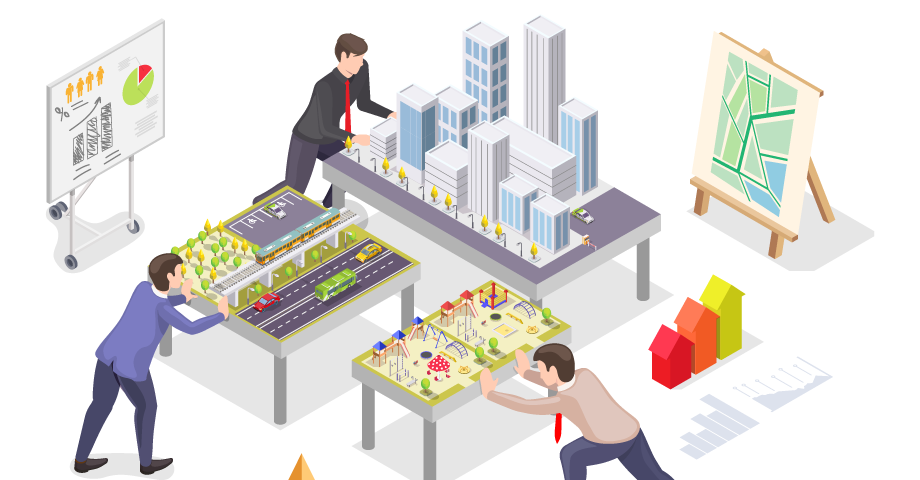-

Top Trends in Sustainable Construction for Multifamily Housing
Developers are increasingly turning to sustainable construction practices as government regulations around carbon emissions become stricter, demand for eco-friendly features increases among consumers, and technological innovation reduces the cost of materials. Initiatives such as Environmental, Social, and Governance (ESG) goals, as well as LEED certification and Energy Star ratings, are also incentivizing sustainable building practices.
-

How the Rise in Office Loan Defaults Will Impact CRE Development
Defaults on loan payments for unused office buildings are on the rise, as owners of Class B and Class C properties face dual headwinds from the ongoing prevalence of remote work and the high-interest rate environment. The commercial real estate firm Cushman & Wakefield estimates about 20% of office space is vacant at present,
-

The Rise of Live-Work-Play Communities: Redefining Urban Living
Live-Work-Play communities are on the rise in major markets across the United States, drawing in young professionals and families with affordable and community-driven living options. The asset class – a form of mixed-use development combining residential, office, retail, and leisure space – is considered the future of urban living. Developers will find unique opportunities in
-

The Evolution of Commercial Real Estate Development
Real estate developers have played a key role in shaping the landscape and character of urban environments over the last 100 years. From the earliest iterations of the contemporary real estate market to the revolutionary changes that have come to the industry over the last several decades, developers are constantly adapting to meet a shifting
-

What Developers Should Know About Live Work Play Communities
The benefits and challenges of incorporating these communities into your portfolio.
-

Understanding the Pros and Cons of Office-to-Residential Conversion
The COVID-19 pandemic and the ongoing popularity of remote work has put office building owners in a difficult position. While certain assets have proved resilient – such as Class A office space rich in amenities – Class B and Class C office buildings remain in decline. As a result, many developers are looking for ways
-

10 Ways Real Estate AI is Transforming the Industry
The commercial real estate development industry, like many others, is set to be disrupted and enhanced by artificial intelligence (AI). The industry has a reputation for being slow to adopt new technologies – Deloitte’s 2024 Real Estate Outlook survey reported 61% of respondents said their firm’s core technology infrastructure still relied on legacy systems. However,
-

Unpacking the Net Zero Building: What Developers Need to Know
Net zero buildings, or properties that produce as much energy as is consumed over the year, may soon become an important part of your firm’s efforts to meet Environmental, Social, and Governance (ESG) targets. The White House set a goal to make zero emissions new construction and retrofit common practice by 2030. To help public
-

Everything You Need to Know About Cap Rate in Commercial Real Estate
The capitalization rate (cap rate) is used to determine the expected return on investment on a rental property. Cap rate is considered the most important and popular metric for determining a project’s profitability and is widely used throughout the real estate industry. Cap rates, a measure of the income produced by a property relative to its